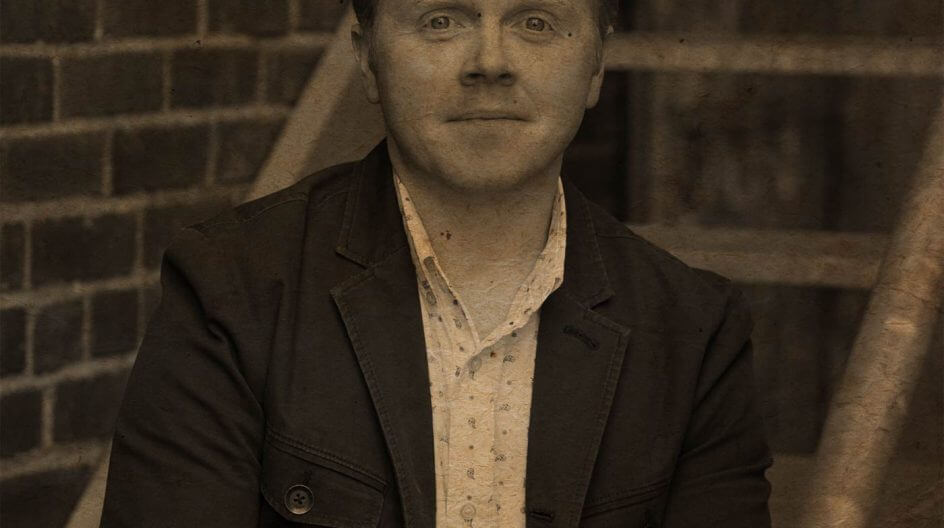Our From the Vault series examines episodes from The Art of Charm’s past more deeply; we invite you to revisit them — or discover them for the first time — with us. This From the Vault revisits our conversation with The Art of Work author Jeff Goins where we learned how to make ourselves more afraid of not trying than failing.
Episode 463: How to Find Your Calling was an interview with the author of The Art of Work, Jeff Goins. It originally aired November 2015. Jeff claims to be simply a “writer who writes books and helps other writers” but he never grew up wanting to be a writer. He had a midlife crisis a quarter of a life early and changed his life. His message? You can do it too.
Quarter-Life Crisis
Jeff was a 27 year-old marketing director of a nonprofit. He wasn’t unhappy but he knew he wasn’t doing anything great. He saw ten years into the future and he saw more of the same: coasting. Life was pretty good, but it wasn’t great.
“Are you going to be proud of the things you are building now, fifty years from now?” The answer for Jeff was an emphatic no. He didn’t want a good-enough life, and found himself scared of that being all that ever happened.
The Good Kind of Fear
“But how do we ‘scare ourselves’ into action?” Jordan probed. Jeff responded by pointing out that as there is eustress (good stress) and distress (bad stress); there is also good fear and bad fear. Good fear is going to move you in the direction of your dreams and is based on really paying attention to what is happening around you.
Part of that paying attention is listening. A quote that Jeff brought up from an author he really admired was, “Before I can tell my life what to do, I need to listen to my life telling me who I am.” If you are lost, ask your friends, your family, your children, your significant other. Jeff’s wife told him over the years over and over that he had a passion for writing and should follow that. Unfortunately Jeff’s response was always, “Yeah yeah yeah, but…” This is because, in his own words, “what’s obvious to you is amazing to others.” He wasn’t listening. He wasn’t even asking the right questions.
That listening involves asking, in a way that comprehends your entire timeline, “Who am I, who have I always been, and where does this mean I’m going?”
Now What?
So we have identified what’s wrong (and there isn’t always something wrong — many times people are doing what they are supposed to be doing) and are orienting ourselves towards pursuing it. Jeff argues against the “quit your job and go for broke” mentality. He observed that the research shows this rarely works. The people who “take a leap” do it over a period of time. In one case a family who made a move to Africa to work in something meaningful to them shared that they took a leap…over a ten-year period.
“It’s not sexy. It’s hard work. But the people doing amazing things now did a lot of hard things in order to get there.” Jeff challenges you to fight the dichotomy of sticking with what you know vs. quitting your job. “Build a bridge to escape from what you do now to what you want to do.” Bridge building takes engineering, smarts, hard work, and a fair amount of capital. In real life too.
Jeff felt compelled to add an asterisk to the famous “10,000 Hour” rule that has become so ubiquitous since Malcolm Gladwell popularized it: “that activity across those 10,000 hours needs to be done to the point of exhaustion. Do what you are working on as hard as you can.” Channeling Yoda, Jeff noted, “Trying doesn’t sound like that to me. It isn’t painful.” You’ll have to do better than trying.
But What If I Fail?
“I think of failure as pivot points,” Jeff answered Jordan when he posed this question. “When you have a failure, you don’t ever have to go all the way back down the road you traveled. What ends up happening is a confrontation with the obstacle. You find a way to deal with it.” Sometimes that’s just another angle, other times it’s needing to become an upgraded version of yourself so you can move the obstacle. Whatever you need to do, “failure is a comma, not a period.”
Jordan echoed this by pointing out that Jeff was using a technique we preach in Bootcamp, which is reframing. Thus, failure becomes an opportunity — a path to success.
Meaning and Purpose
“You know, I am pretty sure I found my calling, but I didn’t ‘figure it out,'” mused Jordan. “How can people do that?” Jeff paused to note that we are in an age in which these privileged questions are far more commonplace, because we have so many options at our disposal. “But what am I supposed to do with that privilege? Does the world need my guilt or my action? I have a moral responsibility to serve the world with the gifts I have been given.”
He gave several examples of how people didn’t “figure out” their calling either, but rather, like Jordan, kept moving forward, while paying attention to what was going on around them.
Remember that From the Vault is just a snapshot of some ideas in any given episode. If you’d like to hear more from Jordan and Jeff, including why Jeff no longer wakes up at 5 a.m. to write anymore (but did for a long while), and the difference between trying to be a writer and actually writing, listen to the entire episode here.
If this article or episode helped you, please consider writing a review for us on iTunes, because the greatest compliment you can give us is a referral to someone you think would appreciate this content. Now get out there and leave everyone better than you found them.


